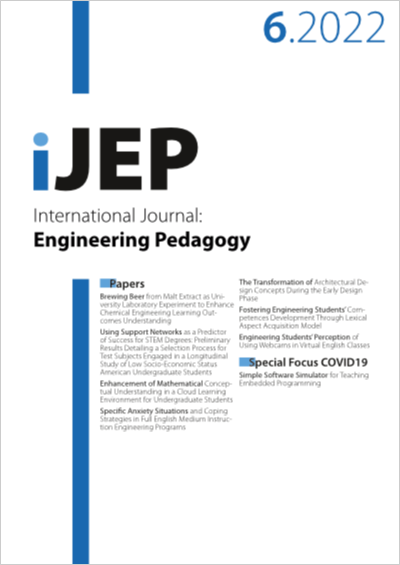Enhancement of Mathematical Conceptual Understanding in a Cloud Learning Environment for Undergraduate Students
DOI:
https://doi.org/10.3991/ijep.v12i6.33775Keywords:
mathematical conceptual understanding, cloud learning environment, undergraduate studentAbstract
Mathematical conceptual understanding is fundamental ability that students should have for learning practice in mathematics. This study presents a learning approach based on a mathematical understanding development strategy in the cloud learning environment to enhance undergraduate students’ comprehension of mathematical concepts. A quasi-experimental design with a pre-test and post-test control group was deployed in this study. The 56 undergraduate students, enrolled in the Number Theory Course, were involved in this study. The 28 students in the experimental group were taught using a mathematical understanding development strategy in a cloud learning environment and the 28 students in the control group were taught using a conventional approach. The research instruments were an instructional plan, and a mathematical conceptual understanding test. Data were analyzed by mean, standard deviation, and t-test. The results found that the mean score of mathematical conceptual understanding of students in the experimental group was higher than the 60 percent criterion. There were statistically significant differences between the mean scores of the students in the experimental and the control groups in their mathematical conceptual understanding in the post-test in favor of the experimental group at a significance level of .05.The results of this study inform the positive impact of learning approach based on a mathematical understanding development strategy in a cloud learning environment for undergraduate students.
Downloads
Published
How to Cite
Issue
Section
License
Copyright (c) 2022 Anuchit Anupan, Benjamas Chimmalee

This work is licensed under a Creative Commons Attribution 4.0 International License.


